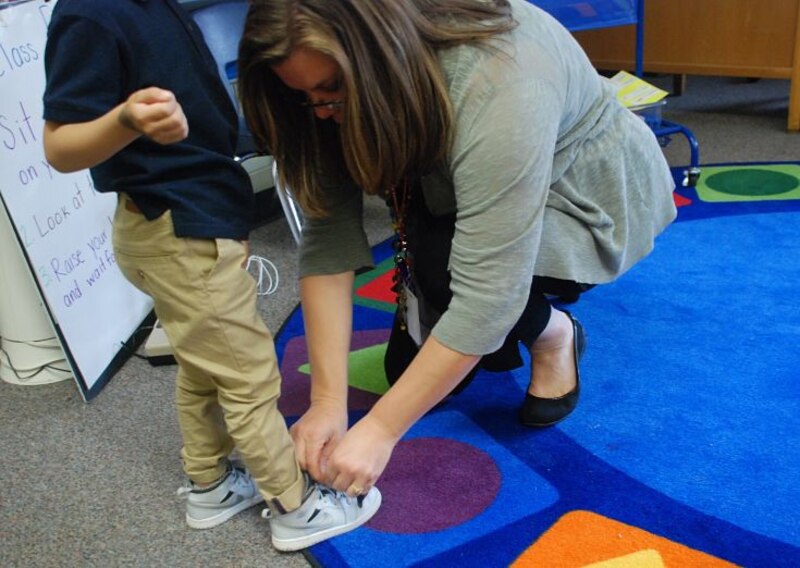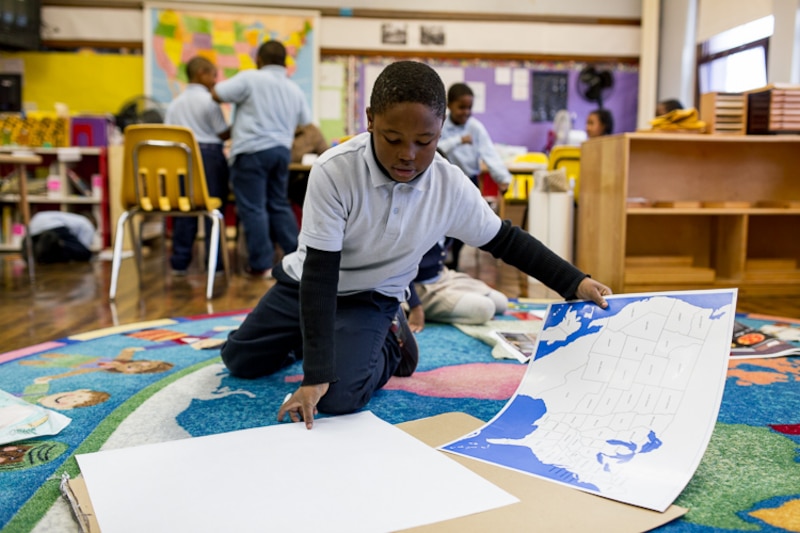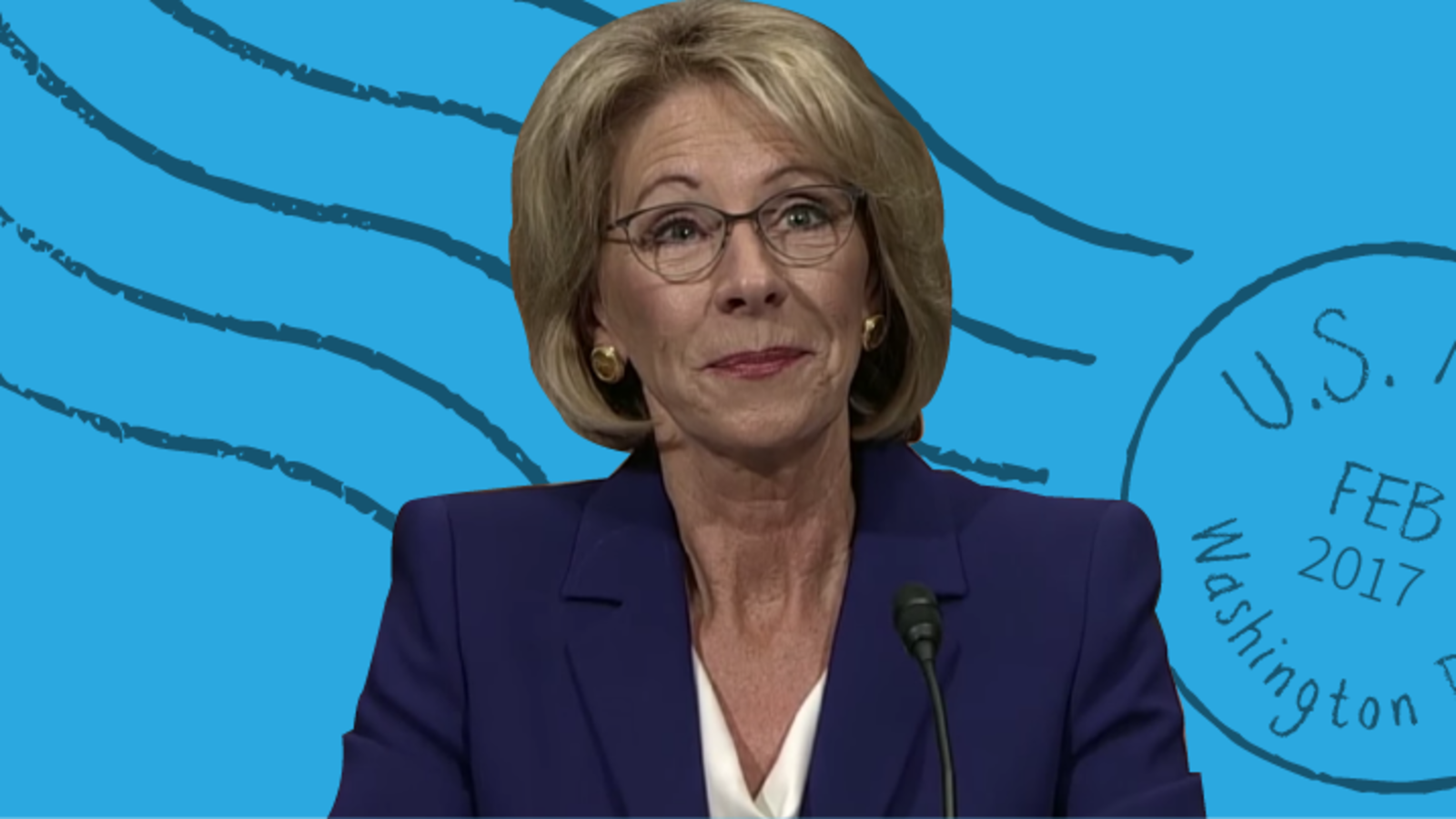“Our school has 300 students spread out over 550 square miles.”
“Today I dealt with a student who has been in 19 foster homes.”
“Public schools are where we build a just and fair society.”
That’s a bit of what you told us when we asked Chalkbeat readers what you wanted the new education secretary, Betsy DeVos, to know about your schools. DeVos, who took the helm at the U.S. Department of Education last week, faced extra criticism before she was confirmed because she hasn’t had personal experience with public schools as a teacher or student.
We thought you could help fill in those gaps — and help her start her to-do list.
It turns out you had a lot to say. Many of you wanted DeVos to know that the school where you work or send your children is working. Others explained how acutely those schools needed additional teachers, pencils, and counselors. And a few of you offered stories of individual students she might never meet, but her policies might touch.
Here’s more of what you told us.
Dear Secretary DeVos, here’s what’s working …
We are a district with great diversity and with great pride. We do not have a lot of money, but the money we do receive is used efficiently and with students in mind.
— Marcella Safe, Arvada, CO
The teachers in my children’s public school work incredibly hard. They put in 30 hours a week above and beyond the typical school week. Fortunately, they are willing to do this with no extra compensation.
— Shari Sullivan-Marshall, Crested Butte, CO
P.S. 295 is a model of the inclusivity that will prepare my (middle class, white, male) child for success in a diverse, global America. It’s a joyful, effective school because it’s funded — and beloved — by our community.
— Zoe, Brooklyn, NY
Three of my children graduated from a “choice” high school in Jefferson County, Co. My wife feels it saved one of our kids from serious trouble, and he and the other two are better for their experience.
— Craig Bakken, Golden, CO
As a white, upper middle-class family, we were blessed to have a wonderful, diverse neighborhood public school. My kids had an incredibly rich experience thanks to the school’s diverse population, which includes many refugee families.
— Beckett Stokes, Denver, CO
My son is a sophomore at Arsenal Tech High School, inner city Indianapolis, and he scored a PSAT score in the 99th percentile. We can afford private, have charters, but chose Arsenal Tech for its awesome teachers. Our son’s teachers deserve better resources, but mostly they deserve your respect.
— Ruth Jean, Indianapolis, IN
Metropolitan State University of Denver is a haven for first generation and nontraditional college students. Though they juggle academics with parenting, jobs, and other adult responsibilities, they come to class prepared, engaged and on time. They work hard and think hard. I love them.
— Anne Thulson, Denver, CO
I am the mother of a severely disabled child. There is no school in my state that could meet her needs the way our local public school has.
— Dawn Mathias, Fort Wayne, IN
The school I teach at is a public charter school that does not treat education as a product or students as customers. The business-model approach to education cannot account for the depth and complexity of a human being.
— Matt Dooley, Durango, CO
I come from a poor family, where we didn’t always have enough to eat, but I was blessed with a strong public school system in my hometown in Massachusetts. Public schools prepared me for college, which launched a successful career that provides for my family.
— Gretchen Craig, New York, NY
We were a beloved community asset linking culture and history across generations.
— Madeline Morrissey, formerly of New Orleans, LA

And what isn’t.
Unregulated charter schools and poor emergency managers destroyed the public school district in Detroit. I teach freshmen at the alternative high school here who are the result of those policies. We don’t get enough funding to serve them emotionally or academically now.
— Emily Simpson, Detroit, MI
Today I dealt with a student who has been in 19 foster homes and another recently busted for dealing meth after a drug dealer groomed her, much like a sexual offender does a victim. She is undocumented with little hope in her future, especially if DACA is repealed.
— Stacey Hervey, Denver, CO
My students need the federal government’s support. Currently, they are suffering from a lack of resources and a lack of consistent teachers. They need people to believe in them.
— Shannon E. G. Brown, Indianapolis, IN
For 30 years I have served students in a rural setting with a high poverty. We have bare-bones resources. We can’t fulfill the transition needs of our secondary students. There are few jobs and much addiction among families.
— Jennifer Christiansen, Chazy, NY
I want you to know that when my students come to school in the morning, many are receiving their first hot meal since they left school the day before. I want you to know that some of my students don’t have electricity or hot water at home, yet are tasked with unfair norms of proficiency.
— Amber, Memphis, TN
There was no school bus to many areas of the city where our students lived. Many took unreliable Detroit city buses to school every day, and if they lost their bus pass, they were required to pay the $200+ to replace it.
— Jen Spears, Detroit, MI
I have students who eat breakfast and lunch daily at school and get snacks sent home because their parents working three-plus jobs can’t afford enough food. I have students who don’t have pencils or books at home to do any school related work.
— Jessica McNary, Gunnison, CO
Our school has 300 students spread out over 550 square miles. It is sad for me to see our starting teacher salary is $30,000 after college grads have spent four or five years of schooling and oftentimes having debt.
— Steve Wilson, Simla, CO
As a Title I school, 75 percent of our students are living below the poverty line. Our fourth and fifth grade classes have over 30 students. Please assist with lowering the teacher/student ratio.
— Terri Mitchell, Lafayette, CO

Some suggestions:
We are working to keep all of our students in school every day until they graduate by using restorative practices. Take a few minutes to find out about how teachers can help students this way.
— Samantha Rubin, Brooklyn, NY
In rural Colorado, it is hard to find and keep teachers because the pay is so low. A voucher program will not work because there aren’t any private schools.
— Janae Ash, Pagosa Springs, CO
I’m from a rural, impoverished school where expectations are high and resources low. With Common Core standards implemented, I’d like to see resources, websites, units, [special education] support for grades K-12 … in one accessible place.
— Cassandra Torres, Las Animas, CO
I am with a non-profit that serves public and charter schools. Teachers and students suffer the most when they aren’t sure if their school will be open the next year.
— Karen Hess, Memphis, TN
My child’s public neighborhood school is a mix of income levels, languages, abilities. Studies show that good neighborhood schools benefit entire communities.
— Natalie Winslow, Culver City, CA
Students must be able to voice concerns about their school and education. They should not only choose where they go to school, but have a strong voice in what and how they are learning.
— Roxanne McKnight, Durango, CO
Along with some reminders — and two invitations.
Teachers like me, along with our community partners, will fight back relentlessly if you try to limit opportunities for our most vulnerable students.
— Sean Davis, Denver, CO
I went to school in Chicago. The milk was often spoiled, but I got an excellent education. I met people from varied economic/racial/social backgrounds. I learned diversity makes us stronger.
— Rebecca, New York, NY
Our elementary school is full of wonderful children who come from difficult backgrounds, and most speak two languages. They may not be getting the best test scores, but they achieve their best.
— Kaity, Detroit, MI
We are a rural public school. We have strong community support and are not failing our children. We struggle in being underfunded but we make it work. We are not paid enough to own homes in our resort community and we still work our hardest.
— Lisa Hughes, Louisville, CO
I grew up in Denver during desegregation and the resulting white flight. People were afraid of their children going to school with children who did not share their class and race … Public schools are where we build a just and fair society, together, for everyone.
— Belle Zars, Denver, CO
A rural school is the hub of the community; we have one building for pre-K through 12. We have limitations (reduced Internet availability, long bus commutes), but we are a small town with big pride. We invite Ms. DeVos to visit and ask us about school choice. She’ll hear there’s no place else we’d rather be.
— Elissa Smith, Lyndonville, NY
I teach at a Title I charter school in Denver, Colorado, serving students of poverty and students of color. My students are talented, brilliant, resilient, and capable young people who represent the future of our country. You are welcome to visit my classroom.
— Hailey McClure, Denver, CO


